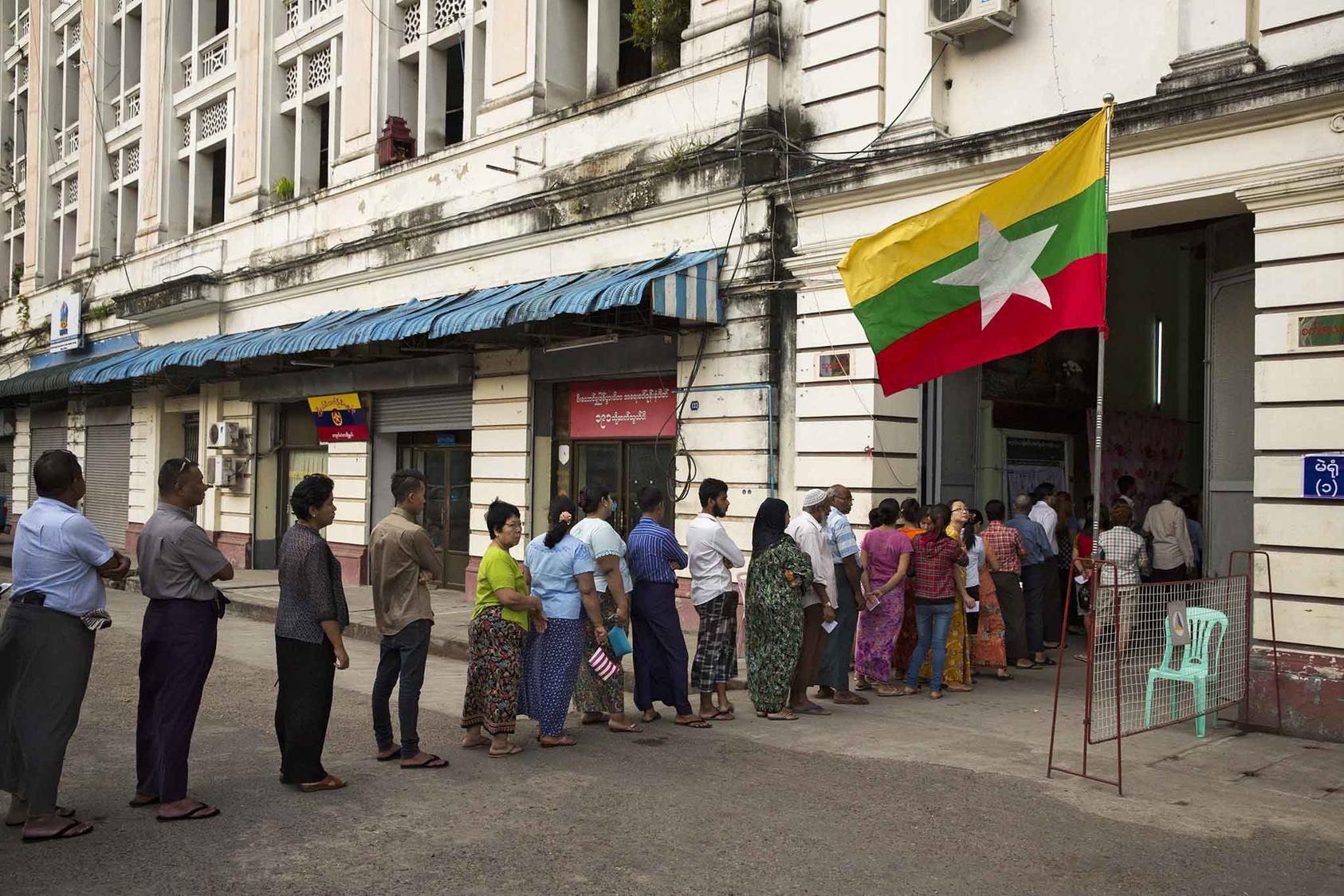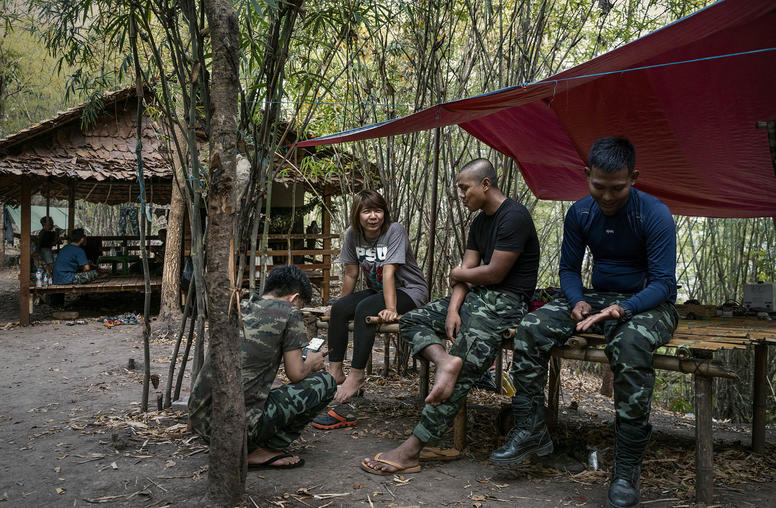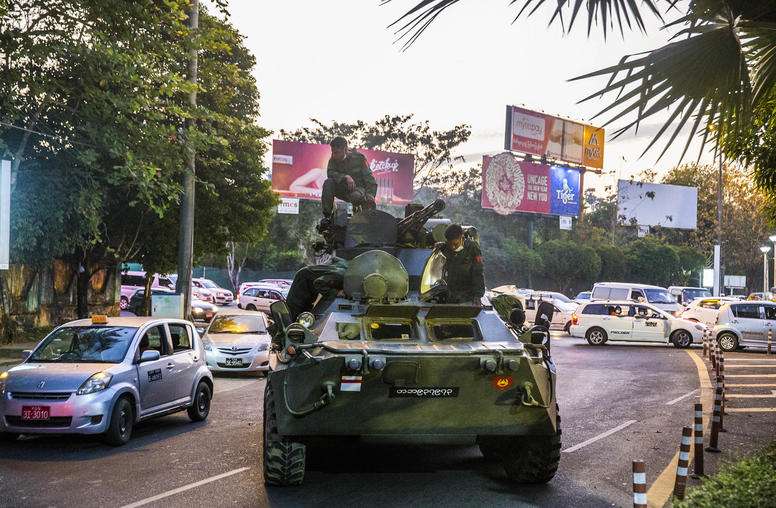When Aung San Suu Kyi’s National League for Democracy (NLD) won the historic 2015 elections, some observers wondered if it would resolve one of her country’s most symbolic issues on the international stage: what to call it. Changed by the military government in 1989 from Burma to Myanmar, much of the international community agreed to recognize the name change. Yet, the United States and the United Kingdom, among a small group of countries, continue to use the name Burma. Why?

The U.S. and others that have not recognized the name change generally argue that it was made without the consent of the people and was thus illegitimate. The military regime, however, has said that “Burma” only refers to its largest ethnic group and is not inclusive of the country’s other 134 ethnic communities. In practice, however, both terms have been used for centuries. Burma, which became the country’s official name under British colonial rule and stuck after independence, was used primarily in spoken language, whereas Myanmar was the formal term generally used in written communication.
The Military’s Move to Myanmar
After the Myanmar armed forces crushed a nationwide pro-democracy uprising in September 1988, the country’s official name (in English) was changed from its post-1974 form, the Socialist Republic of the Union of Burma, back to the Union of Burma, which had been adopted when Myanmar regained its independence from the United Kingdom in January 1948.
In July 1989, the new military government changed the country's name once again, this time to the Union of Myanmar, long the country’s vernacular name. At the same time, a number of other place names were changed to conform more closely to their original pronunciation in the Burmese language. For example, Rangoon—then the country’s administrative capital—became Yangon. Not only were the new names considered more accurate, but they also shed any implied connection to the country’s colonial past. In 2008, after promulgation of a new national constitution, the country’s official name was changed yet again, this time to the Republic of the Union of Myanmar.
The new names have been accepted by most countries, the United Nations, and other major international organizations. A few governments, activist groups, and news media outlets, however, still cling to the old forms, primarily as a protest against the former military regime's refusal to put the question of a name change to the people of Myanmar. Some countries, like Australia, have taken a mixed approach, at times using both names as a way of registering concern over human rights abuses and offering a gesture of support for the country's embattled democracy movement, while also bowing to the formal demands of diplomatic protocol. The old names were also believed to be the preference of Aung San Suu Kyi.
Despite Democratic Progress, Nothing New on the Name
On November 8, 2015, a general election was held which, by most accounts, was reasonably free and fair. The result was a landslide for the NLD, which gave it a majority in the combined Union Assembly (Pyidaungsu Hluttaw). As a result, it was able to elect a new president in 2016 and pass a law creating the position of state counselor for Aung San Suu Kyi (who under the 2008 constitution is unable to become president).
Questioned about the official name of the country soon after her party took office in 2016, Aung San Suu Kyi stated her continuing preference for the colonial-era term Burma, but said that both names were acceptable.
Indeed, in April 2016, she told the foreign diplomatic corps that it did not matter whether her country was called Burma or Myanmar, as “there is nothing in the constitution that says you must use any term in particular”—in fact, the constitution clearly states that the country is called the Republic of the Union of Myanmar. She told the assembled foreign officials that she personally preferred “Burma” but would use “Myanmar” from time to time, to make everyone “feel comfortable.”
Nearly three years since the NLD’s electoral victory, the U.S. seems no closer to changing its policy on what to call the Southeast Asian nation. Like all other countries, it uses “Myanmar” in formal correspondence with the Naypyidaw government, but the U.S. still publicly refers to “Burma.” Given Aung San Suu Kyi’s tolerance of “Burma” and current tensions between the two countries over the Rohingya question, a decision by the U.S. to accept the name Myanmar seems unlikely any time soon.
This article is an adapted excerpt from Andrew Selth’s forthcoming Peaceworks report, “Myanmar’s Armed Forces and the Rohingya Crisis.”
Andrew Selth is an adjunct associate professor at the Griffith Asia Institute, Griffith University, in Brisbane, Australia. He has been studying international security issues and Asian affairs for 45 years, as a diplomat, strategic intelligence analyst and research scholar. Dr. Selth has published six books and more than 50 peer-reviewed works, most of them about Burma and related subjects.



